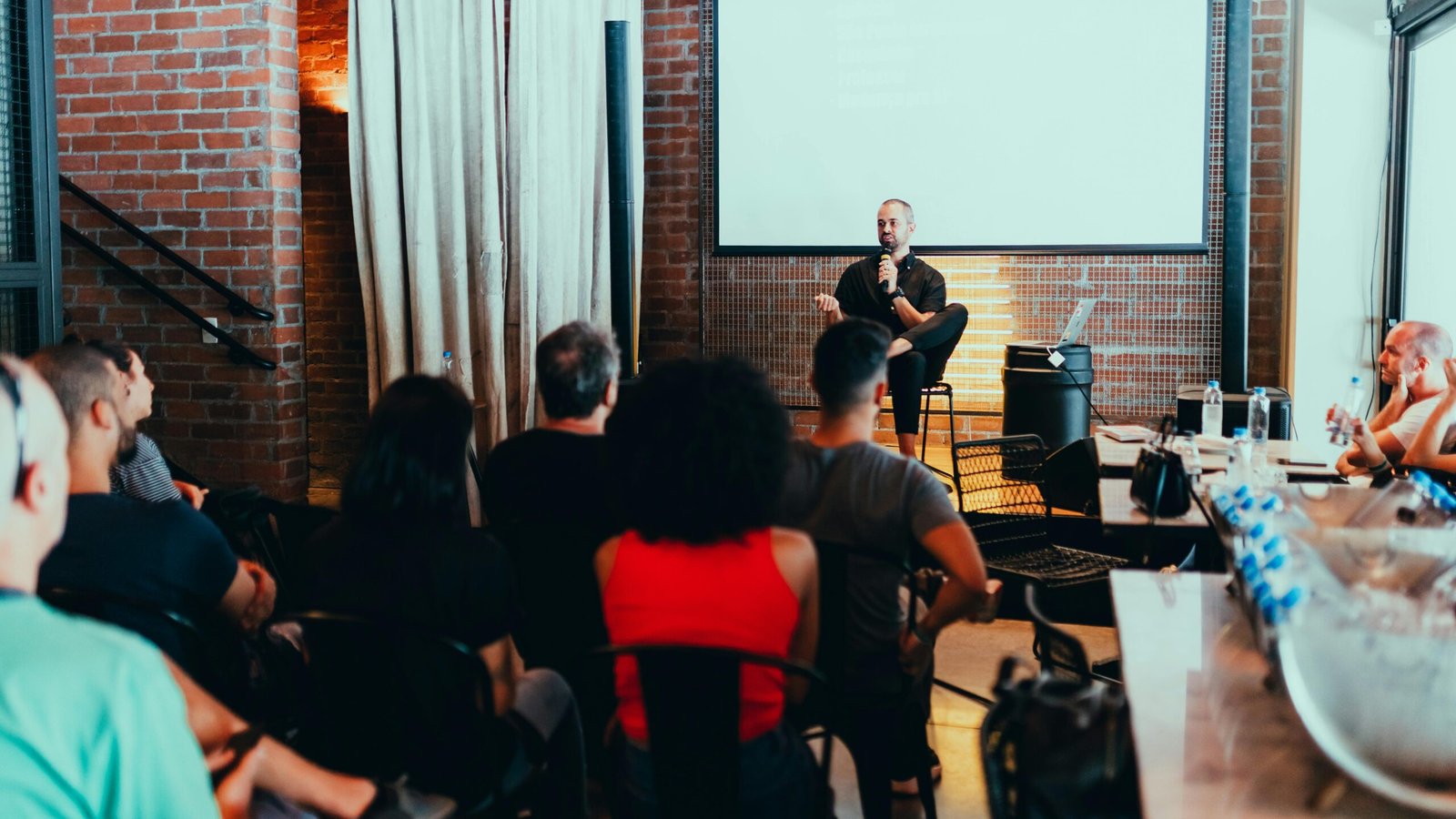We are constantly bombarded with advice on how to gain confidence and become successful public speakers. From self-help gurus and their endless platitudes to TED Talk personalities and their saccharine anecdotes, the field is crowded with “experts” peddling their pet theories. Yet true confidence remains elusive for most. Thus, what is the real secret to becoming a dynamic, compelling speaker who commands attention and respect? Hence, as one who has bombarded audiences with speeches for over two decades, let me share what I have actually learned from experience.
Abandon False Humility
First, accept that you have something worthwhile to say. False humility will only hold you back. If you did not believe you had knowledge or insights to impart, you would not be speaking in the first place. Accordingly, you need to prove that you have expertise in your given subject worthy of an audience’s time and attention. Do not let doubts undermine the value of your message.
Connect with the Audience
While expertise impresses, empathy inspires. Find sincere ways to relate your message to the interests and priorities of listeners. Make eye contact. Smile warmly. Use casual, conversational language. Relax into a dialogue rather than delivering a monologue. Let your passion shine through in a way that brings others along on the journey of your ideas.
Embrace Imperfections

No speaker is flawless, and mistakes help make us human. An occasionally stumbling tongue or flawed delivery detracts less than a robotic, overly polished persona. Folks appreciate authenticity over artificial perfectionism. If you slip, pause briefly, then continue with grace. Confident people are comfortable in their own skin, even when misspeaking.
Here’s a funny example from my experience giving public speeches over the years:
I’ll never forget the time I was giving a presentation to a group of executives and accidentally put the wrong slide deck up on the screen. Instead of slides about our company’s financial projections, I up-popped photos from my family vacation to the beach.
There were dozens of pictures of me stuck in quicksand, doing a keg stand at a clambake, and even one of my embarrassing sunburns spelling out a rude word. The room erupted in laughter as I fumbled to get to the right presentation folder.
It was definitely the icebreaker I didn’t intend! Through their guffawing, someone kindly took pity and handed me a flash drive with the proper slides. I was crimson-red but finally regained composure.
From then on, I triple-checked which deck was loaded whenever I spoke. It served as a good reminder that sometimes the most memorable speeches aren’t perfectly polished; they’re the ones audiences truly connect with through imperfections.
As mortified as I was in the moment, looking back, it’s now one of my favorite public speaking stories. It showed even professionals can get tripped up, and having a sense of humor about it built rapport with those executives. So don’t be afraid to laugh at yourself if things go awry!
Master the Material Thoroughly

Confidence comes from a comprehensive command of the subject at hand. Accordingly, you must know the material inside and out through extensive research, reading, practice, and refinement. Therefore, anticipate potential questions or criticisms and hone effective rebuttals. Never wing it; thorough preparation is the foundation of poise before any crowd.
Here are some tips for mastering material and preparing for a public speaking event:
- Develop a thorough outline or speech structure to stay organized. Include main points, supporting details, and transitions.
- Research your topic extensively so you have full command of the subject matter. Anticipate questions or objections that may come up.
- Practice your speech out loud, not just rehearsing in your head. Time yourself and get feedback from others.
- Use visual aids sparingly and make sure they enhance your message, not distract from it. Know how to use any technology.
- Consider real-life examples, stories, or anecdotes to explain complex ideas and keep people engaged.
- Make note cards with bullet points as a backup.
- Anticipate nervousness and practice relaxation techniques like deep breathing.
- Get plenty of rest the day before and avoid last-minute cramming. Prepare incrementally over time.
- Interact confidently with event organizers in advance to know logistics like timing, audience, and format.
So, thorough preparation through practice and reviewing your content extensively is key to feeling fully confident and in control on speaking day. Mastering the material takes work but pays off come event time.
Here are some valuable resources for further exploration of becoming a confident public speaker:

- TED Talks (www.ted.com) – Browse many inspiring and educational talks on all topics. Great for analyzing effective speaking styles.
- American Public Speaking Association (www.publicspeaking.org) – Offers courses, coaching services, and a comprehensive online library of guides and tutorials.
- Toastmasters International (www.toastmasters.org) – Global nonprofit focused on communication and leadership skills through local clubs and mentorship programs.
- TedX YouTube channel (www.youtube.com/user/TEDxTalks) – Watch independently organized TED-style talks on unique subjects from all over the world.
- Brené Brown’s Daring Greatly (book) – Research-based work exploring the role of vulnerability, courage, and authenticity in effective communication.
- Six Minutes (app) – Helps practice public speaking anytime with a speech timer and recording feature forfeedback.
- Udemy public speaking courses (www.udemy.com) – Various paid online courses from experts covering everything from techniques to speechwriting.
- Amy Cuddy’s book Presence (book) – Learn to adopt a posture of confidence through social science insights into body language.
With diligent practice and exploration of resources, any anxious speaker can become a poised presenter. Continuous learning keeps presentations fresh and engaging.
Conclusion

In summary, true confidence emerges from owning expertise, mastering material, connecting authentically, and embracing imperfections. It is an elusive alchemy requiring mastery of both knowledge and relating to others. So, for more in-depth guidance, I recommend reading presentations by experienced communicators on how to engage audiences and think on your feet. Therefore, with extensive practice tailored to your strengths, you too can become a confident, compelling public speaker.




Leave a Reply